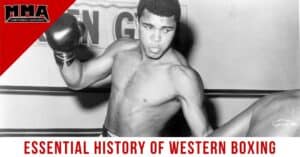The Impact of Dehydration on Sports Performance: A Comprehensive Analysis
Dehydration’s Impact on an MMA Fighter’s Performance
In the high-intensity world of mixed martial arts (MMA), where split-second decisions and peak physical performance are crucial, dehydration can have a profound impact on an athlete’s ability to compete effectively. Let’s explore a specific example of how dehydration can affect the performance of an MMA fighter:
Scenario: John, a professional MMA fighter, is preparing for a high-stakes match. In the days leading up to the fight, he is determined to make weight for his division, so he resorts to aggressive fluid restriction and intense sweating techniques to shed excess pounds quickly.
Effect on Performance:
- Reduced Endurance: Dehydration compromises John’s cardiovascular system. With reduced blood volume, his heart has to work harder to circulate oxygen to his muscles. As a result, his endurance levels drop, and he becomes fatigued more quickly during training sessions and the actual fight.
- Slower Reaction Times: MMA requires lightning-fast reflexes and split-second decision-making. Dehydration affects cognitive function, including reaction times and focus. John’s mental processing may slow down, making it difficult for him to respond rapidly to his opponent’s movements and adapt to changing situations in the octagon.
- Diminished Strength and Power: Dehydration impairs muscle contraction and strength. John’s grappling, striking, and takedown abilities may suffer, reducing the force behind his punches and kicks, compromising his takedowns, and weakening his ability to defend against his opponent’s attacks.
- Increased Risk of Injury: Dehydrated muscles are more susceptible to cramping and strains. The risk of injury, such as muscle pulls, ligament tears, and joint issues, becomes higher for John, jeopardizing his performance during the fight and potentially affecting his career in the long run.
- Inadequate Recovery: Dehydration hinders post-training and post-fight recovery. John’s body struggles to repair damaged tissues and replenish glycogen stores, prolonging muscle soreness and delaying his readiness for the next training session or fight.
- Cognitive Impairment: Dehydration affects John’s mental clarity and decision-making ability. In the fast-paced and strategic world of MMA, making the right moves at the right time is crucial. Dehydration may lead to poor judgment, suboptimal tactical decisions, and an inability to adapt to his opponent’s tactics effectively.
- Risk of Heat-Related Illness: MMA matches can take place in hot and humid environments. Dehydration increases John’s susceptibility to heat-related illnesses such as heat exhaustion or even heatstroke, which can lead to serious medical complications and impair his performance mid-fight.
Dehydration, the condition of insufficient fluid levels in the body, has far-reaching consequences on overall health and well-being. Its effects are particularly pronounced in the realm of sports performance. This comprehensive report delves into the intricate relationship between dehydration and athletic performance, exploring medical data, case studies, clinical insights, and real-world examples to highlight the critical importance of hydration for optimal sports achievements.
1. Physiology of Dehydration and Sports Performance
Dehydration disrupts the delicate balance of bodily functions, leading to a cascade of physiological changes that detrimentally affect sports performance. The body relies on water for thermoregulation, nutrient transport, waste elimination, and maintaining blood volume. When fluid levels decrease, the body’s ability to carry out these essential functions is compromised.
a. Thermoregulation Impairment
Dehydration hampers the body’s ability to regulate temperature during physical exertion. Elevated core body temperature not only decreases exercise capacity but also increases the risk of heat-related illnesses such as heat exhaustion and heatstroke.
b. Cardiovascular Strain
Reduced blood volume due to dehydration leads to increased heart rate and decreased stroke volume. This compromises the delivery of oxygen and nutrients to working muscles, resulting in early fatigue and diminished performance.
2. Adverse Effects of Dehydration on Sports Performance
Even mild dehydration can have a significant impact on athletic performance, regardless of the duration of the activity. Studies have shown that as little as 2% dehydration can lead to noticeable reductions in physical and cognitive performance.
a. Endurance Performance
Dehydration impairs endurance by reducing the body’s capacity to maintain a stable core temperature. This leads to earlier onset of fatigue, decreased exercise tolerance, and diminished overall endurance.
b. Strength and Power Performance
Dehydration affects strength and power activities by decreasing muscle contractility and increasing perceived effort. Athletes may experience reduced muscle strength, power output, and anaerobic performance.
c. Cognitive Function and Decision-Making
Dehydration can impair cognitive function, including attention, memory, and decision-making. This can result in poor judgment, slower reaction times, and increased risk of accidents during sports activities.
3. Case Studies and Clinical Insights
Numerous case studies have highlighted the detrimental effects of dehydration on sports performance.
a. Case Study: Marathon Runners
A study published in the “Journal of Athletic Training” examined the impact of dehydration on marathon runners. It found that even mild dehydration led to significant reductions in performance, with dehydrated runners exhibiting slower race times and increased perception of effort.
b. Clinical Insights: Soccer Players
Research conducted on soccer players revealed that dehydration during match play led to impaired sprint performance, reduced dribbling ability, and decreased accuracy in passing and shooting.
4. The Importance of Proper Hydration
Athletes are advised to prioritize proper hydration before, during, and after exercise to optimize performance.
a. Pre-Exercise Hydration
Starting an activity in a hydrated state is crucial. Adequate fluid intake before exercise helps maintain blood volume and supports thermoregulation.
b. During Exercise Hydration
Fluid intake during exercise is essential to prevent excessive fluid loss and maintain electrolyte balance. Athletes are encouraged to follow personalized hydration strategies, considering factors like sweat rate and environmental conditions.
c. Post-Exercise Hydration
Rehydrating after exercise is vital for recovery. Consuming fluids and electrolytes helps restore lost fluids, supports muscle recovery, and prepares the body for future exertion.
5. Real-World Examples and Practical Considerations
a. Heat Stress in Sports Events
During high-intensity sports events, such as marathons or cycling races, inadequate hydration can lead to heat stress, increased risk of heat-related illnesses, and poor performance.
b. Dehydration in Team Sports
Team sports, such as basketball and soccer, also suffer from the effects of dehydration. Fatigue due to dehydration can compromise decision-making, reduce coordination, and hinder overall team performance.
The evidence is clear: dehydration significantly impairs sports performance, even at mild levels. The physiological disruptions caused by inadequate fluid intake negatively impact endurance, strength, power, cognitive function, and decision-making. Case studies and clinical insights underscore the real-world implications of dehydration on athletes’ achievements.
Optimal hydration practices are essential for athletes to maintain peak performance and reduce the risk of heat-related illnesses and injury. Educating athletes, coaches, and support staff about the critical role of hydration and implementing personalized hydration strategies can lead to enhanced sports performance, improved recovery, and overall better well-being for athletes at all levels. As the saying goes, “When you feel thirsty, you’re already dehydrated.” Hydration should be a top priority for athletes striving to reach their full potential and excel in their respective sports.





